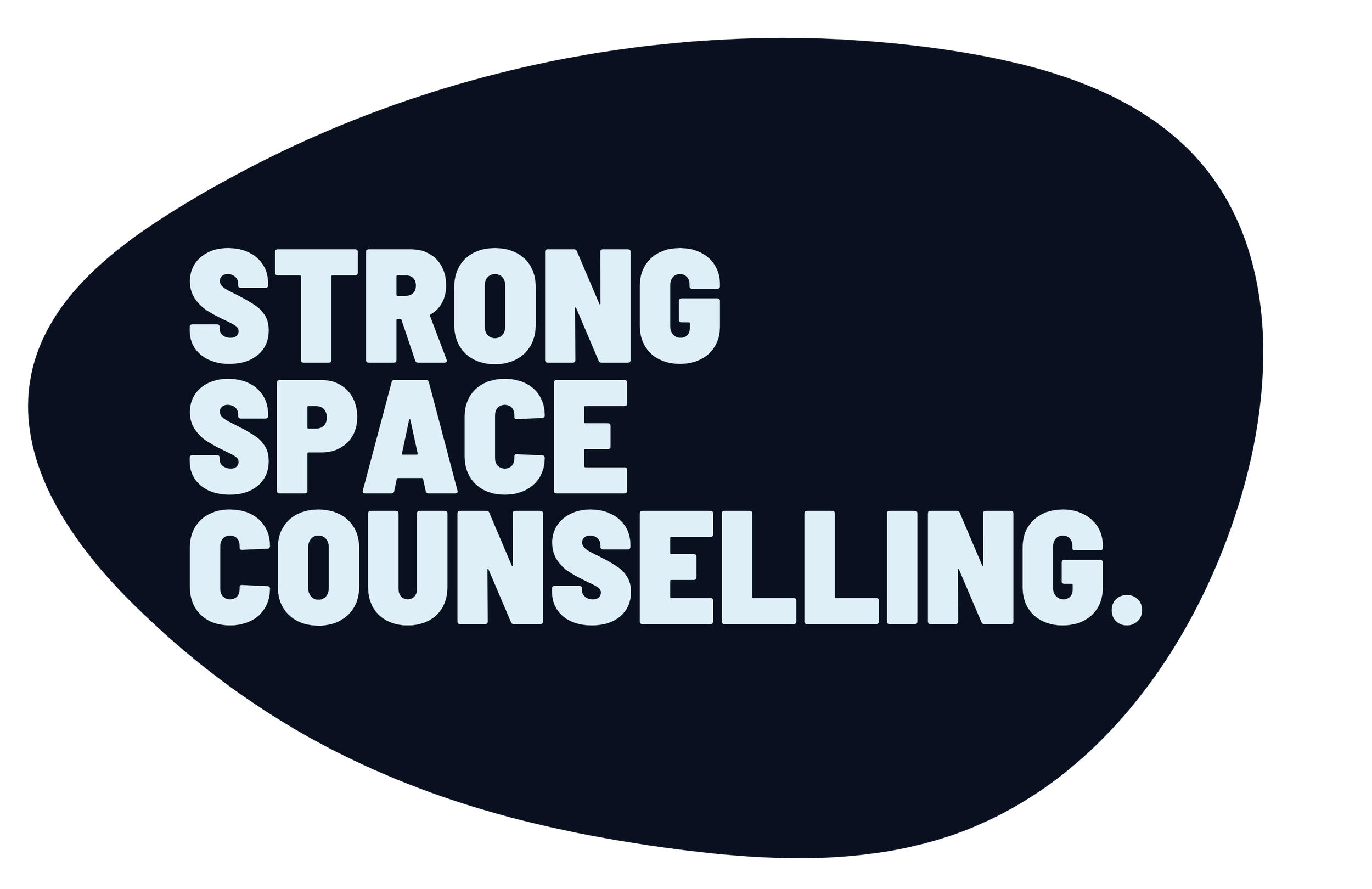Dangers of Keeping Your Feelings to Yourself
Be strong. Be silent. Be a man.
For generations, outdated societal norms have demanded an emotional detachment and stoic demeanour in men. We’re told emotional expression is for the fairer sex, and whenever our blokes are experiencing some inner upheaval, we need to simply ‘suck it up’ and ‘move on’. Unfortunately, this silent mandate not only conceals their true feelings but also unknowingly sows seeds of deep-seated emotional damage.
In this article, our team at Strong Space Counselling are exploring some of the key dangers of keeping your feelings to yourself can have on your physical, social and emotional well-being.
Why Has History Created Emotionally Unavailable Men?
From tales of fierce warriors having no fear in the heart of battle, to the proud ‘man’s man’ of the 20th century, our society has long championed the unyielding, go-it-alone, unemotional male figure, inadvertently crafting the archetype of the emotionally unavailable man.
Emotional expression has been seen not as a sign of strength, but as a weakness. Societal norms have drilled into men the notion that they must be the unbreakable rocks: resilient and unaffected by the emotional tides that inherently accompany the human experience.
But we are human, and this pressure to conform to a rigid standard of emotional suppression has woven a dangerous tapestry where men feel compelled to wear masks, hiding their true emotional selves, until the weight becomes too much to withstand. Through the years, these expectations have created a perilous legacy of emotional suppression that echoes through generations, leaving many men struggling to connect with their emotions and, by extension, with others around them.
How Does Emotional Suppression Impact Your Mental, Physical & Social Well-Being?
Physical Health Risks
Without a viable outlet to express yourself, inner problems compound and permeate every aspect of our life.
And what does this create?
Stress.
Stress relentlessly erodes men's physical health, with a wealth of studies conducted on the impact of stress on our bodily functions. For example, when your heart rate continuously rises to elevated levels, it can send forth a flood of hormones and spike your blood pressure, resulting in a greater risk of hypertension, heart attack and stroke. Beyond these, stress and an inability to regulate your emotions can lead to adverse lifestyle choices, such as poor diets and eating habits leading to obesity.
Mental Health Implications
The weight of unexpressed emotions creates a pressure cooker, inevitably leading to a spectrum of mental health disorders, such as anxiety and depression. When men aren’t equipped to regulate their emotions, nor do they have the right support structures in place to express what they’re feeling, the negative thoughts begin to compound, leaving a darker outlook on their lives. What follows is typically a sense of isolation, misunderstanding, and even despair that can lead to dire consequences.
In Australia, men make up more than three quarters of deaths by suicide, affecting thousands of people needing support each year. The data paints a sombre picture, underscoring the urgent need for emotional openness as a preventive measure against the silent epidemic of mental health issues sweeping through the male population.
Relationship Strain
Social and emotional well-being are also closely linked. Emotionally unavailable men can stifle their relationships with their partners, friends, even colleagues and work contacts. When emotions are stifled, the bridge of understanding and empathy between individuals weakens, leading to disconnection, isolation, resentment and, if left to fester, contempt.
For instance, consider a dedicated husband and father who consistently conceals his emotional struggles. The silent battle he feels he must wage alone doesn’t just alienate him from himself but also creates an invisible yet impassable chasm between him and his loved ones. His wife and children often felt bewildered and distant, unable to reach the man hidden behind the fortress of suppressed emotions.
Breaking the Silence: The Importance of Emotional Expression
Let’s start by setting the record straight and confirming that emotional expression is not a sign of weakness. To admit you’re struggling is a sign of strength, courage, authenticity, and a commitment to improvement.
For men, articulating emotions is pivotal, acting as a vital outlet for stress and serving as a cornerstone for mental health. By openly expressing their emotions (especially with each other), men can forge deeper connections with the most important people in their lives, cultivating relationships rooted in trust, compassion, understanding and genuine connection. Learning to communicate our feelings, emotions, needs and experiences in whatever format feels right to the individual is the cornerstone of developing a greater sense of self-awareness, constructing a foundation where individual men can develop a stronger sense of identity, purpose and meaning in their lives and relationships. The positive ripple effects of emotional expression extend beyond personal well-being, fostering a sense of community and shared humanity.
Practical Steps for Change – Learn Tools for Regulating Emotions with Strong Space
If you would like to practice better emotional expression and mental well-being, dedicated counselling for men can play an indispensable role in that journey. Not only does it offer a safe and confidential space to explore your feelings, but it also provides expert guidance for you to navigate through life's challenges.
At Strong Space Counselling, we have cemented our reputation as a beacon of support to Australian blokes, offering tailored services to meet diverse needs. Whether you're grappling with personal issues or seeking strategies for relationship challenges, our dedicated team can guide you on the path to emotional health and well-being.
Our specialised services include:
Anxiety Counselling: Personalised strategies offered to understand and manage your anxiety, providing tools to navigate through life’s uncertainties with confidence and calm.
Depression Counselling: Engage in sessions that can illuminate a path out of the darkness, offering support and strategies to mitigate the crippling effects of depression.
Anger Management Counselling: Learn effective techniques for controlling and expressing anger in healthy, constructive ways, fostering better interpersonal relationships and personal contentment.
Fatherhood and Parenting Counselling: Acquire skills and insights that support a positive, engaged approach to fatherhood, helping men to connect deeply with their children.
Relationship and Dating Counselling: Enhance your understanding and approach to relationships, receiving guidance that supports building fulfilling, respectful connections.
Sex and Sexuality Counselling: Explore and understand your sexuality in a safe, non-judgmental space, promoting a healthy, positive sexual self-concept and experience.
If you are tired of feeling emotional detachment and a lack of opportunities for meaningful expression, speak with our team at Strong Space Counselling today for more information.
References:
Yaribeygi H, Panahi Y, Sahraei H, Johnston TP, Sahebkar A. The impact of stress on body function: A review. EXCLI J. 2017 Jul 21;16:1057-1072. doi: 10.17179/excli2017-480. PMID: 28900385; PMCID: PMC5579396.
Tomiyama AJ. Stress and Obesity. Annu Rev Psychol. 2019 Jan 4;70:703-718. doi: 10.1146/annurev-psych-010418-102936. Epub 2018 Jun 21. PMID: 29927688.
Tafet GE, Nemeroff CB. The Links Between Stress and Depression: Psychoneuroendocrinological, Genetic, and Environmental Interactions. J Neuropsychiatry Clin Neurosci. 2016 Spring;28(2):77-88. doi: 10.1176/appi.neuropsych.15030053. Epub 2015 Nov 9. PMID: 26548654.
Suicide Prevention Australia, STATS AND FACTS, Suicide Prevention Australia, 2022, https://www.suicidepreventionaust.org/news/statsandfacts


